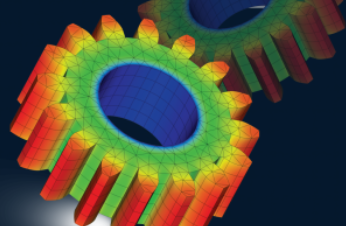Mechanism Design
A mechanism is a mechanical device that transfers motion and/or force from a source to an output. Mechanism design is much as it sounds: the creation and refinement of mechanisms needed for a specific application or product assembly.
Your product won’t work as intended unless its component mechanisms and assemblies do. It’s cheaper and easier to investigate a product in 3D CAD than when it’s already reached the prototype stage. No doubt you can use your weekend to refine it if anything goes wrong.
With Creo Parametric, you can take advantage of core capabilities in mechanism design and motion analysis right from the start of your design process. Begin by building assemblies using mechanical connections, such as a pin or gear. Mechanical connections enable you to analyze motion behavior because you’ve got a virtual representation of a fully-functioning mechanism, not an assembly frozen in time. Now you can investigate the model’s kinematic behavior and check for interference and range of motion issues or develop motion envelopes if needed.
Creo Mechanism Dynamics Option (MDO), an extension to Creo Parametric, gives you extended capabilities to design and test mechanisms under real-world stresses. You can simulate the forces and accelerations in the moving components of assemblies and also incorporate dynamic influences such as springs, motors, friction, and gravity.
What about your own real-world stresses? With our software, you can design more efficiently, find errors earlier, and get to market faster with your best work. We think you’ll find it more relaxing.
Use these resources to get started on your journey of understanding and implementing better concept design.
Have more questions about mechanism design?
If you have any questions regarding mechanism design, our representatives will gladly walk you through our solution.





